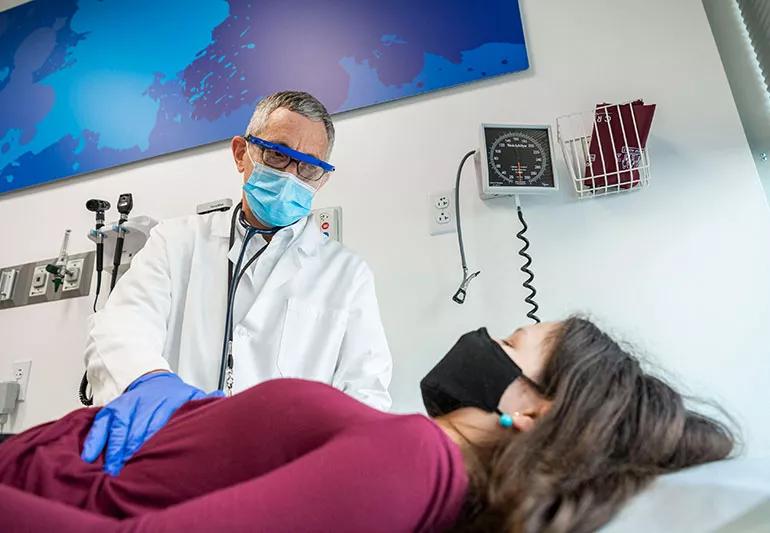The short answer from a primary care specialist

Image content: This image is available to view online.
View image online (https://assets.clevelandclinic.org/transform/ce30a46a-6c03-45e3-8783-73891cad2e93/InternistVsFamilyPhysician-MLC-770x533-1_jpg)
A healthcare provider checks on a patient's abdomen while the patient lays don on an examination table.
Q: I’m looking for a primary care doctor. What’s the difference between an internist and a family physician?
Advertisement
Cleveland Clinic is a non-profit academic medical center. Advertising on our site helps support our mission. We do not endorse non-Cleveland Clinic products or services. Policy
A: Internists are specialty-trained to treat adults from 18 years old through the geriatric years. They have intensive and comprehensive training in all aspects of adult medical care. Internists specialize in primary care screening and in treating common adult problems, such as diabetes and hypertension, as well as in treating patients with a complex combination of conditions.
Family medicine doctors are specialty-trained to care for people across the lifespan, from birth through the geriatric years. Family medicine doctors have formal training in pediatrics, adult medicine, obstetrics and gynecology, mental health and more. This broad training equips them to deal with a wide range of health problems for the entire family, with a focus on wellness, disease prevention and chronic disease management.
— Family medicine physician Garrett Kirkpatrick, DO
Advertisement

Delivered every Tuesday!
Sign up for our Health Essentials emails for expert guidance on nutrition, fitness, sleep, skin care and more
It's a letter about the news!
Learn more about our editorial process.
Advertisement
Your first point of health contact
Bleeding is a risk and warrants taking care, but the reward of this lifesaving medication is great
Severe and debilitating headaches can affect the quality of your child’s life
With repeat injections over time, you may be able to slow the development of new wrinkles
Although it can be alarming, it’s normal to experience blood clots during menstruation
Type 2 diabetes isn’t inevitable with these dietary changes
Applying a hot or cold compress can help with pain
Pump up your iron intake with foods like tuna, tofu and turkey